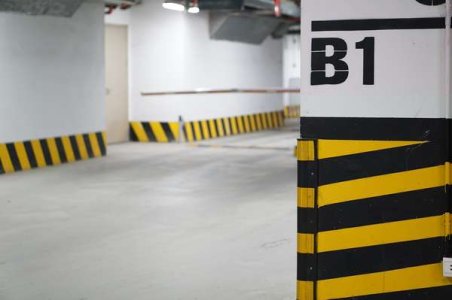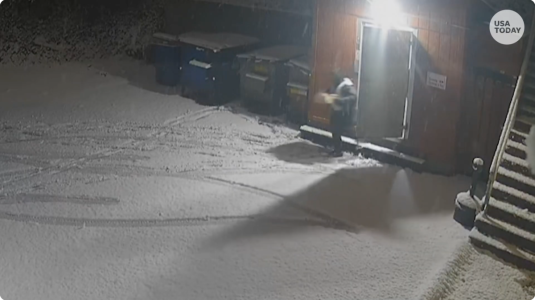This Grandma was slapped with $340 in parking tickets, but what happened to her car next will shock you!
- Replies 0
When Ameera Shaheed, a disabled grandmother, found herself facing $340 in parking fines, she never imagined the ordeal that would unfold.
Living on a fixed income in Wilmington, Delaware, Shaheed relied on her vehicle for mobility and independence. Despite being ticketed multiple times by local police, she was confident that the fines would be dismissed, as she believed her car was parked legally.
However, the situation took a distressing turn when, as Shaheed awaited her day in court, the city towed her car and held it as what could only be described as ransom.
The demand was clear: pay the full $340 within 30 days or lose the car. For Shaheed, who lacked the funds to cover the fine, this was a nightmare scenario.

The city's actions didn't just leave Shaheed without her primary means of transportation; they also set a precedent that felt like a betrayal of trust.
The vehicle, valued at over $4,000, was eventually allowed to be sold by the private tow company to cover the outstanding fines—a loss that Shaheed was not compensated for.
“I kept going to the city of Wilmington, and I explained to them that I need my car because that's the only way I can get around,” Shaheed told the Post and Courier.
Her frustration was palpable as she faced the reality that the city could potentially repeat this process indefinitely until her debt was settled.
In a twist of fate that highlights the power of perseverance, Shaheed, along with Earl Dickerson, another car owner who suffered a similar fate, took a stand against what they perceived as an unjust system.
They filed a lawsuit against the city of Wilmington in 2021, seeking justice not only for themselves but for others who might find themselves in the same predicament.
Their efforts were not in vain. In December, a Delaware court ruled in favor of Dickerson and Shaheed, stating that they deserved compensation for their losses.
Moreover, the court's decision brought about a significant change in the city's towing policy, putting an end to the controversial practice for other drivers.
The city was mandated to provide repeated notices of violations before resorting to towing in non-emergency situations. Additionally, the city was required to offer accessible payment plans and convenient hearings for parking ticket disputes.
In cases where vehicles are impounded, owners now have the option to retrieve their cars without immediate payment, provided they attend a hearing or agree to a payment plan.
“Wilmington treated so many of us unfairly,” Shaheed said. “But the city has done the right thing and created a fair impound system.”

Do you have any difficult experiences surrounding parking fines? We invite you to share your experiences or questions about parking fines and vehicle impoundment in the comments below!
Living on a fixed income in Wilmington, Delaware, Shaheed relied on her vehicle for mobility and independence. Despite being ticketed multiple times by local police, she was confident that the fines would be dismissed, as she believed her car was parked legally.
However, the situation took a distressing turn when, as Shaheed awaited her day in court, the city towed her car and held it as what could only be described as ransom.
The demand was clear: pay the full $340 within 30 days or lose the car. For Shaheed, who lacked the funds to cover the fine, this was a nightmare scenario.

A disabled grandmother, Ameera Shaheed, was engaged in a legal dispute regarding $340 in parking fines when her car was impounded by the city of Wilmington before her court hearing. Image source: Quang Hoàng Kim / Pixabay.
The city's actions didn't just leave Shaheed without her primary means of transportation; they also set a precedent that felt like a betrayal of trust.
The vehicle, valued at over $4,000, was eventually allowed to be sold by the private tow company to cover the outstanding fines—a loss that Shaheed was not compensated for.
“I kept going to the city of Wilmington, and I explained to them that I need my car because that's the only way I can get around,” Shaheed told the Post and Courier.
Her frustration was palpable as she faced the reality that the city could potentially repeat this process indefinitely until her debt was settled.
In a twist of fate that highlights the power of perseverance, Shaheed, along with Earl Dickerson, another car owner who suffered a similar fate, took a stand against what they perceived as an unjust system.
They filed a lawsuit against the city of Wilmington in 2021, seeking justice not only for themselves but for others who might find themselves in the same predicament.
Their efforts were not in vain. In December, a Delaware court ruled in favor of Dickerson and Shaheed, stating that they deserved compensation for their losses.
Moreover, the court's decision brought about a significant change in the city's towing policy, putting an end to the controversial practice for other drivers.
The city was mandated to provide repeated notices of violations before resorting to towing in non-emergency situations. Additionally, the city was required to offer accessible payment plans and convenient hearings for parking ticket disputes.
In cases where vehicles are impounded, owners now have the option to retrieve their cars without immediate payment, provided they attend a hearing or agree to a payment plan.
“Wilmington treated so many of us unfairly,” Shaheed said. “But the city has done the right thing and created a fair impound system.”
Key Takeaways
- A disabled grandmother, Ameera Shaheed, was engaged in a legal dispute regarding $340 in parking fines when her car was impounded by the city of Wilmington before her court hearing.
- Shaheed's vehicle, valued at more than $4,000, was sold by the private tow company to cover the outstanding fines, leaving her without compensation.
- A Delaware court ruled in favour of Shaheed and another car owner, stating they must be compensated and ordered the city to revise its towing and impound policies.
- The city of Wilmington will now provide repeated notices for violations, offer payment plans and hearings for tickets, and allow impounded vehicles to be retrieved without upfront payment if a hearing is attended or a payment plan is entered into.
Do you have any difficult experiences surrounding parking fines? We invite you to share your experiences or questions about parking fines and vehicle impoundment in the comments below!






